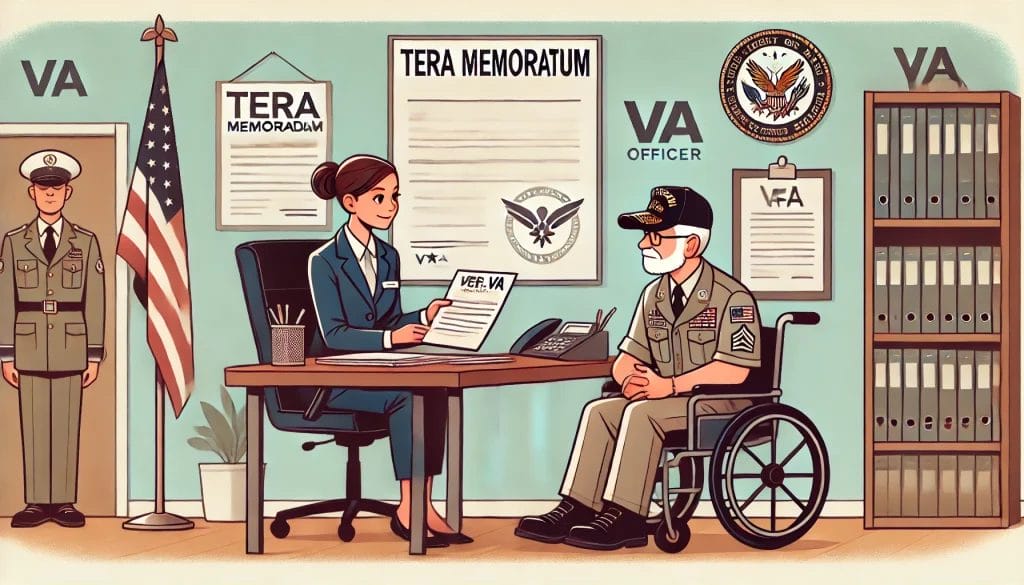The Temporary Early Retirement Authority (TERA) program addresses this issue by offering retirement and disability benefits to veterans affected by toxic exposure.
This article explains what TERA exposure is, the conditions it covers, and how veterans can file for VA disability claims related to toxic hazards. For many veterans, exposure to toxic substances during military service can lead to long-term health conditions.
What is TERA?
In the context of the VA, TERA refers to Toxic Exposure Risk Activities, where veterans were exposed to harmful chemicals, substances, or environments during their military service. This could include exposure to burn pits, radiation, hazardous chemicals, or toxic waste. Veterans who were involved in such activities may develop health conditions over time due to these exposures.
While TERA was originally intended for early retirement, it now plays a significant role in claims related to toxic exposure. For veterans who have developed conditions linked to their service, filing a TERA VA claim can be essential for receiving compensation and medical benefits.
Need Some More Help with your VA Disability?
Learn more about the VA Disability process and get help with our VA Disability Chatbot programmed and trained by AI

Health Conditions Covered by TERA Exposure
Veterans exposed to toxic hazards during their service are at risk for various health conditions. Some of the common conditions linked to TERA toxic exposure include:
- Respiratory issues: Conditions like asthma, chronic bronchitis, and other lung diseases are common among veterans exposed to smoke, chemicals, or hazardous dust.
- Cancers: Exposure to toxic substances may lead to cancers, including lung, liver, or bladder cancer.
- Neurological disorders: Long-term exposure to toxic substances like heavy metals can result in neurological disorders, including Parkinson’s disease.
- Skin conditions: Exposure to hazardous chemicals or waste may result in chronic skin issues.
To file a claim for these conditions, veterans must provide evidence that their health issues are connected to their service. Participation in toxic exposure risk activities—such as burn pit duties or chemical handling—is key to establishing a service connection for TERA disability benefits.
Filing a TERA VA Claim
To successfully file a TERA VA claim, veterans must demonstrate that their health conditions are related to their service and TERA exposure. The following steps can help ensure the claim is complete:
- Service records: These documents should confirm that the veteran participated in activities where toxic exposure occurred.
- Medical documentation: A DBQ TERA medical opinion from a healthcare provider is essential. This opinion connects the veteran’s health condition to their military service, establishing a clear link between exposure and the illness.
- TERA memorandum: The TERA memo VA is a crucial document that outlines the eligibility criteria and conditions covered under the program. It supports veterans’ claims by demonstrating their exposure to toxic substances during their service.

Importance of the TERA Memorandum in VA Disability Claims
The TERA memorandum (link to PDF Download on a TERA Memorandum) is vital for veterans filing claims related to toxic exposure. This document outlines the risks veterans faced during service and highlights the specific toxic exposure risk activities they participated in. By including the TERA memo VA disability, veterans can strengthen their case for disability benefits by showing a clear link between their military service and their health condition.
For example, if a veteran served in an area known for toxic hazards, the TERA memorandum would reference that location and help validate the claim. Veterans should also provide a detailed medical opinion (such as a DBQ TERA medical opinion) to further establish the connection between their service and their health problems.
The Role of the PACT Act in TERA Claims
The PACT Act has expanded protections for veterans affected by toxic exposure, including those covered by TERA. The PACT Act TERA memo provides additional support for veterans filing claims, ensuring they have access to expanded healthcare and disability benefits.
The PACT Act addresses conditions that may have been previously overlooked or denied, allowing veterans to file new claims or reopen old ones if they were affected by toxic exposure during service.

Preparing for the TERA Exam VA
Veterans filing a claim under TERA may be required to undergo a TERA exam VA, which assesses the severity of their condition and its connection to their service. The results of this exam play an important role in determining the veteran’s eligibility for benefits. Veterans should be prepared to provide details about their service, especially participation in toxic exposure risk activities.
For veterans exposed to hazardous substances during their military service, the TERA exposure program provides a path to both early retirement and critical health care benefits. Conditions such as respiratory illnesses, cancers, and neurological disorders are just a few examples of the many health issues that can be caused by toxic exposure.
Veterans seeking compensation and benefits should gather the necessary documentation, including their TERA memo, service records, and medical opinions, to ensure a successful VA claim. With expanded protections under the PACT Act, veterans affected by TERA toxic exposure now have access to a broader range of healthcare and disability support.
